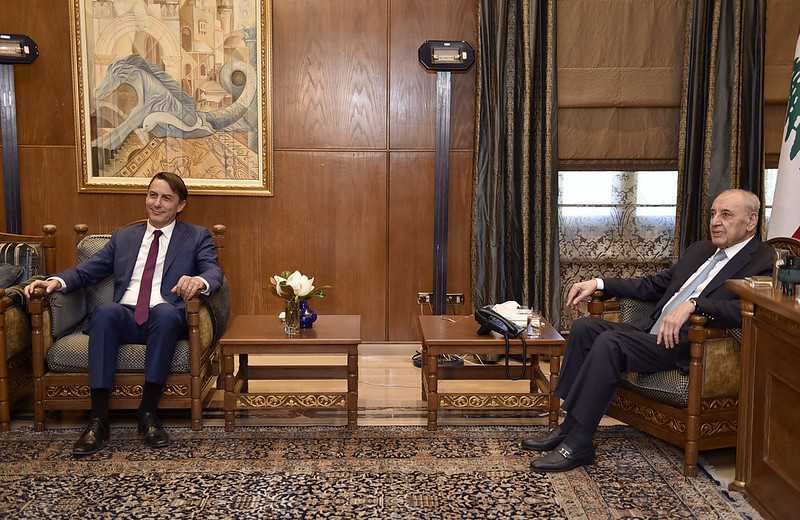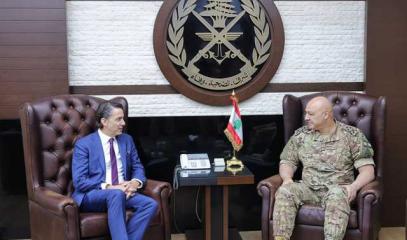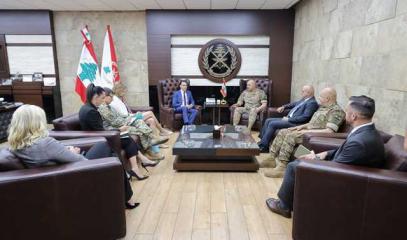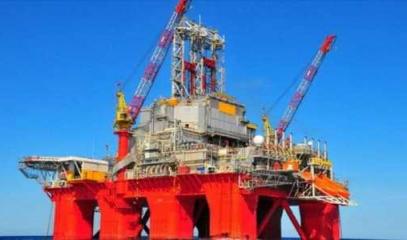Hochstein attempts ‘last’ mediation to avert Israel-Hezbollah war
The US envoy met with Israeli and Lebanese officials in an attempt to ease tensions. The IDF strikes southern Lebanon, while preparing attack plans. US President Biden is worried about a widening conflict. Israeli overflight of Lebanon’s airspace and the disputed Shebaa Farms and the hills area near Kfarchouba are unresolved issues in the negotiations between Israel and Lebanon.
Beirut (AsiaNews) – “The conflict… between Israel and Hezbollah has gone on for long enough,” said US presidential envoy Amos Hochstein. “It’s in everyone’s interest to resolve it quickly and diplomatically — that is both achievable and it is urgent.”
Without mincing his words, Hochstein conveyed this new, "last warning" to Hezbollah during a brief visit to Beirut on Tuesday, during which he met with General Joseph Aoun, Commander of the Lebanese Armed Forces, Nabih Berry, Speaker of the Lebanese Parliament, incumbent Prime Minister Nagib Mikati and Foreign Minister Abdallah Bou Habib.
Flying in from Tel Aviv, where he had met Prime Minister Benjamin Netanyahu and President Hertzog the day before, Hochstein said that in the last two weeks, the risk of a widening of the conflict was so great that the US president decided to send him to the region.
The US envoy reported progress on reaching an agreement in Gaza, saying that the battle for Rafah was about to end and that Israel could then be tempted to turn to towards Lebanon, if Hamas and Hezbollah do not accept President Biden's plan, which Hamas still considers "a fool's bargain".
Meanwhile, according to Western diplomatic sources, the United States is concerned about Israel’s "haste" to go to war with Hezbollah "without a clear strategy or consideration for the consequences of a wider conflict".
More than eight months of violence on the Israeli-Lebanese border has left at least 472 people dead in Lebanon, most of them fighters but also 91 civilians, according to AFP. On the Israeli side, at least 15 soldiers and 11 civilians were killed, according to the authorities.
Hezbollah, for its part, has responded to the new warning by using, as it has done for months, its military capabilities as deterrence, which it is gradually disclosing to the IDF.
The group released a video on Tuesday showing high-resolution aerial images taken by its drones over the port of Haifa and military installations in Krayot, demonstrating at the same time its offensive capabilities against Israel's “Iron Dome”.
Last week, it also showed off surface-to-air missiles, which the United States has always refused to supply to the Lebanese army.
According to sources close to the pro-Iranian party, the release of aerial views of the port of Haifa is a response to Israeli claims that Hezbollah "has been considerably weakened" by the death of one of its most important commanders, Taleb Sami Abdallah, killed last week in an Israeli strike on a house in the border village of Jouaiyya.
Still on the war front, the Israeli air force bombed Khiyam again overnight, hitting the centre of the village.
Hezbollah announced the death of another fighter, Hassan Saab, originally from Yaroun, a town where the IDF[i] said it hit a weapons depot.
Also yesterday, the Israeli military announced that, “As part of the situational assessment, operational plans for an offensive in Lebanon were approved and validated”.
On the diplomatic front
On the diplomatic front, French President Emmanuel Macron proposed, on the sidelines of the G7 summit, to work with the United States and Israel to contain the situation. Qatar is playing a role, at the request of the United States.
In this context, an Arab diplomatic source noted that the recent visit to Doha by Ali Hassan Khalil, political adviser to Speaker Nabih Berry, focused on the situation in the south and on ways to make progress towards an agreement.
The latter would include, other diplomatic sources say, banning armed demonstrations, while allowing residents of southern Lebanon, including Hezbollah fighters, to remain in their homes without heavy or visible weapons.
The negotiations do not include any "withdrawal" by Hezbollah north of the Litani River, but provide for the withdrawal of heavy weapons and long-range, high-precision missiles.
However, two points require further discussion before a solution can be found.
The first concerns Israeli overflights of Lebanese airspace. Lebanon demands an end to Israeli violations, which Israel refuses to do.
The second point concerns the disputed Sheba'a Farms and the hill area near Kfarchouba, which will be postponed to a later date, in the absence of official recognition by Syria of Lebanon's sovereignty over the area.
Within the framework of these negotiations, the Americans are also pushing for the start of oil and gas drilling operations in Lebanese waters.
Qatar's contribution to the reconstruction of the South, the establishment of an economic plan in cooperation with several countries, and aid in the electricity sector are also mentioned.
[i] Israeli Defence Forces
28/07/2020 16:47
07/10/2022 20:27
14/10/2022 18:15










.png)










